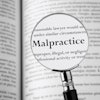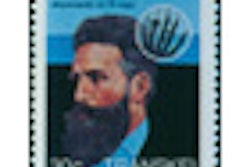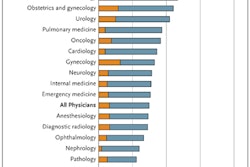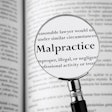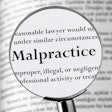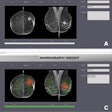The Kwiatkowski case highlights the patchwork of regulation governing allied health professionals, as well as the challenges faced by existing credentialing organizations in investigating personnel incidents that hospitals might prefer to keep under wraps. There are multiple channels for obtaining and maintaining a technologist's license, and there is no national database or clearinghouse for all allied healthcare workers that can quickly disseminate news of a disciplinary action to all the states, associations, and employers that might need to know about it.
"The essential issue is, with all these different channels in obtaining and maintaining state licenses, is there any central clearing mechanism as in driver's licenses and medical licenses to suspend all licenses?" a radiologic technologist stated in an email to AuntMinnie.com. "And once [a license] is 'flagged,' how long does it take the other jurisdictions to respond?"
Instead, most allied health personnel are regulated either by the states or through national accreditation organizations such as ARRT. The situation can be particularly confusing in radiology, where some states have no requirements at all that RTs be licensed to operate diagnostic radiology or radiation therapy equipment.
Indeed, Pennsylvania is a good example of the confusing array of overlapping jurisdictions in radiology. The state Department of Environmental Protection regulates radiology equipment, but most allied health personnel are regulated by the Department of Health, which requires RTs to either have a state license with the department or be credentialed with ARRT.
What's more, a third department, the Department of State, regulates another class of radiology personnel, radiology assistants, defined as auxiliary personnel who perform radiology procedures on the premises of a doctor and under their supervision. However, this classification only covers individuals working in doctors' offices and not hospitals.
Would the CARE bill help?
The Kwiatkowski scandal has developed just as a number of associations that represent allied heath personnel in radiology make a major push to pass federal legislation requiring technologists to meet minimum educational standards and be credentialed before they can work at radiology and radiation oncology facilities. Called the Consistency, Accuracy, Responsibility, and Excellence in Medical Imaging and Radiation Therapy Act of 2011 (CARE), the legislation would set basic minimum education and certification standards for all medical imaging and radiation therapy personnel.
The CARE bill is designed to address what proponents believe is a shortcoming in the current regulation of RTs: the fact that not all states require certification or licensure for an individual to work as a radiologic or radiation therapy technologist. The bill would require all individuals performing in these roles to either pass a national certification exam from a designated organization such as ARRT, or have state licensure or certification.
However, as previously noted, Kwiatkowski was already certified by ARRT when some of the alleged infections with hepatitis C occurred. Also, the CARE bill, if enacted, would not be a piece of criminal law and would not carry criminal penalties, according to Annemarie Henton, a spokesperson for the American Society of Radiologic Technologists (ASRT), which is backing the legislation. Henton noted that criminal convictions typically result in the revocation of certification (by an organization such as ARRT) and/or revocation of licensure (by state agencies).
But by the time a criminal conviction occurs, it may already be too late. And, in fact, many healthcare providers seem afraid to report to coworkers and regulatory authorities infractions that might warrant termination but fall short of criminal charges -- such as ethical lapses -- for fear of litigation by terminated employees, according to a poster in the AuntMinnie.com Forums.
"Employers are VERY sensitive to possible lawsuits against them for sharing information with coworkers about an employee, especially if an employee denies the allegation and legally escalates the case," one poster said. "You may hear about some of them, but certainly not all, and I'm thinking you don't hear about the majority of such cases until after the fact. And so when your coworker leaves 'for a better job' or because 'it's just not working out here' they actually may be leaving because they've been ejected on an ethics violation, but in many of those cases you'll never know the real reason."
ARRT acknowledged that its hands can be tied in cases short of criminal convictions, due in large part to confidentiality concerns.
"Health facilities and public agencies do not normally release the details of an open investigation because of requirements of due process and employee privacy and confidentiality statutes," ARRT said in its statement. "Those involving allegations of mental health and substance abuse issues are even more restrictive given applicable federal and state privacy laws."
Still, ARRT noted that the organization handles 3,000 complaints per year, and it issued 222 public sanctions in 2011 for infractions ranging from criminal convictions to failure to follow professional standards of behavior. ARRT believes that the number would be higher if it had access to information held by state agencies, employers, and others.
Some healthcare personnel experts believe that the only way to make such information more accessible is through a national database for traveling healthcare personnel. In fact, one of the staffing companies that hired Kwiatkowski, SpringBoard, is proposing just such a clearinghouse, according to spokesperson Yeninas. In addition, the company is also advocating that hepatitis C blood tests be added to the battery of tests given to healthcare workers prior to employment.
"SpringBoard is going to start an initiative that hopefully will result in a national clearinghouse for medical workers who travel. Right now, there is nothing to prevent someone who gets fired in Arizona from getting a job in New Hampshire," Yeninas said. "Our real regret about this is that [Kwiatkowski] went on and allegedly did some pretty terrible things, and the people who hired him had no way of knowing what his background was."


